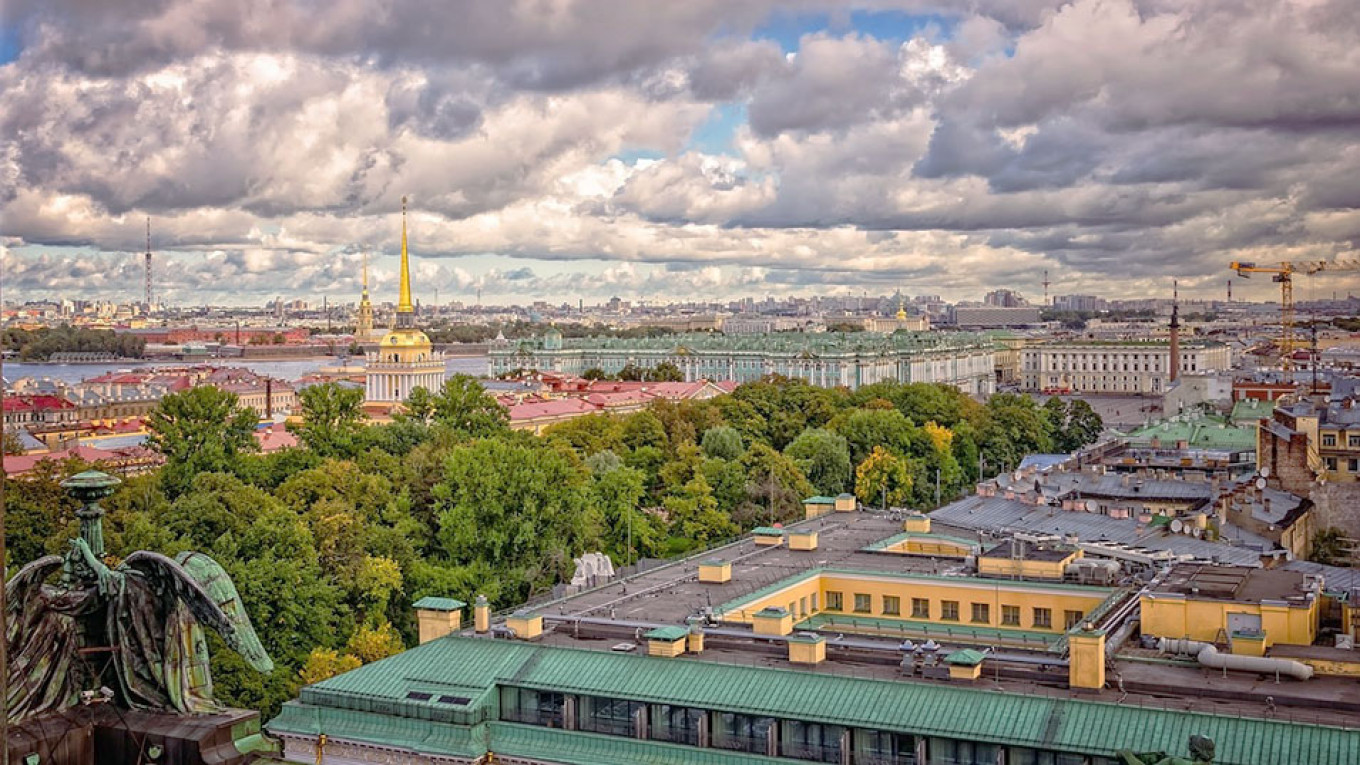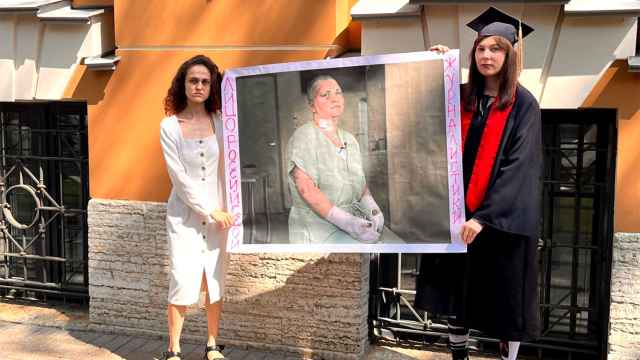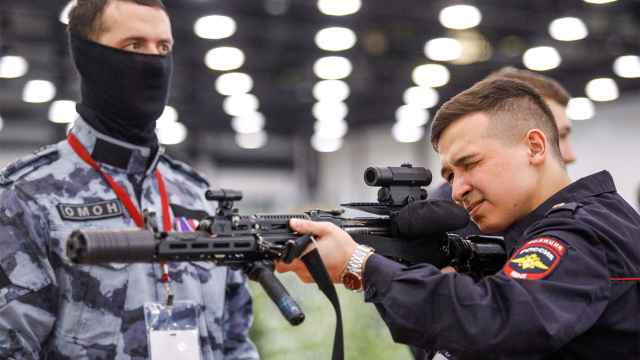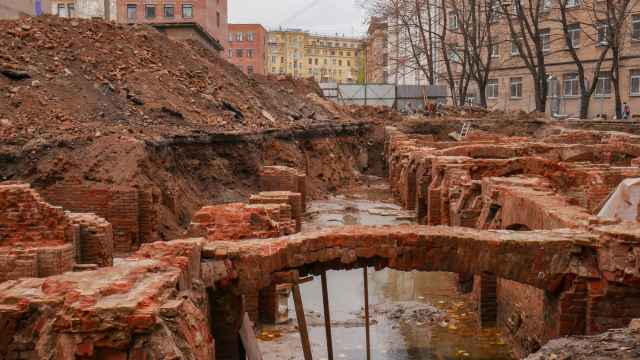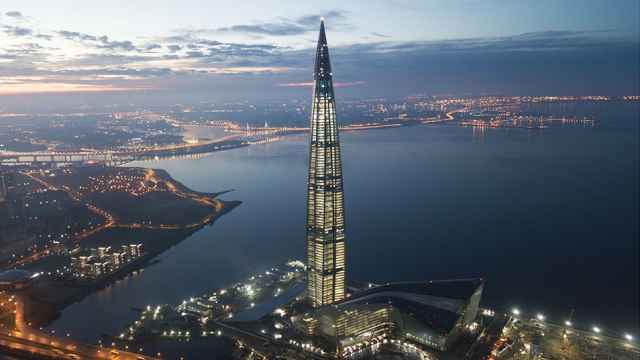ST. PETERSBURG — A controversial proposal from a Moscow architecture expert to tear down St. Petersburg’s historical center as a cost-saving measure sparked heated debate at an international cultural forum on Thursday.
Architect Vladimir Shukhov first proposed the plan in September, arguing that Russia’s second-largest city could not afford to preserve its aging historical center and must ease its preservation laws to attract private investors. Local architects called the proposal a provocation, while some activists expressed fears that it was testing the waters for big Moscow developers interested in St. Petersburg’s real estate.
“St. Petersburg is entering a period of decline and stagnation and this is largely because locals are insisting on preserving the city in its original state,” Shukhov told a panel of experts at St. Petersburg’s Cultural Forum, which is being held at venues across the city until Nov. 16.
He estimated that it would cost the city 500 billion rubles ($7.8 billion) to renovate monuments, restore facades and save buildings that are in critical condition — a sum he said the government cannot afford.
Fellow panelist Maxim Atayants, a St. Petersburg-based architect, disagreed, arguing that the city has a responsibility to save its historic center to ensure its future development.
“St. Petersburg is unique when compared to other European cities in that the sum of its buildings is much more valuable than any one of them taken separately,” he said.
He added that cash-strapped Soviet authorities had managed to meticulously restore the city to its original state after the devastation of the Siege of Leningrad — as St. Petersburg was then called — during World War II, and that modern authorities were in a much better position.
“We need to make sure there are absolutely no visible changes to the city landscape,” Atayants said, while admitting that regulations for changing the interiors of buildings should be relaxed.
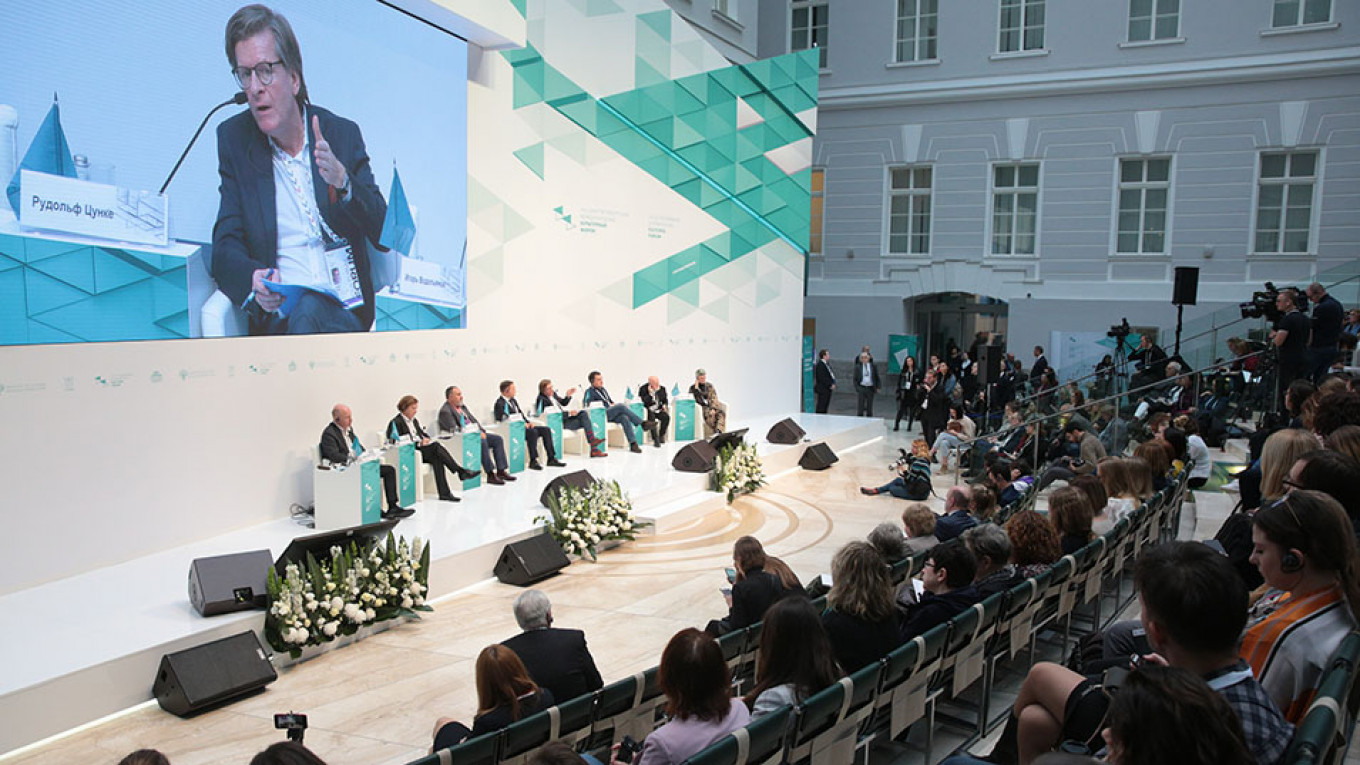
Historical preservation is a hot-button issue for St. Petersburg’s influential activist community, which has won battles in the past to block gas giant Gazprom from building a skyscraper in the city center and the Orthodox church from taking ownership of St. Isaac’s Cathedral.
The forum discussion comes as locals worry that St. Petersburg is in danger of losing its status as a UNESCO World Heritage Site, after a report from the organization in August criticized local authorities for allowing new developments in the historic center that violated the city’s commitments to preservation.
Attitudes in the audience at the forum were mixed.
“St. Petersburg should undoubtedly be preserved, but I also agree that it should be a city that is alive and doesn’t turn into a museum,” Oksana Belagay, a 46-year-old archeologist, told The Moscow Times.
Anya, a local architecture student, said she believed the city should attract private investment but that businessmen shouldn’t change the city’s fabric.
Meanwhile, Dmitry, a museum curator, said that while the problem of preservation needs to be addressed, he doesn’t agree with Shukhov’s radical proposal for immediate changes.
“Who knows, we might try to solve the problem here and now and in 50 years realize we made a mistake,” he said.
A Message from The Moscow Times:
Dear readers,
We are facing unprecedented challenges. Russia's Prosecutor General's Office has designated The Moscow Times as an "undesirable" organization, criminalizing our work and putting our staff at risk of prosecution. This follows our earlier unjust labeling as a "foreign agent."
These actions are direct attempts to silence independent journalism in Russia. The authorities claim our work "discredits the decisions of the Russian leadership." We see things differently: we strive to provide accurate, unbiased reporting on Russia.
We, the journalists of The Moscow Times, refuse to be silenced. But to continue our work, we need your help.
Your support, no matter how small, makes a world of difference. If you can, please support us monthly starting from just $2. It's quick to set up, and every contribution makes a significant impact.
By supporting The Moscow Times, you're defending open, independent journalism in the face of repression. Thank you for standing with us.
Remind me later.



